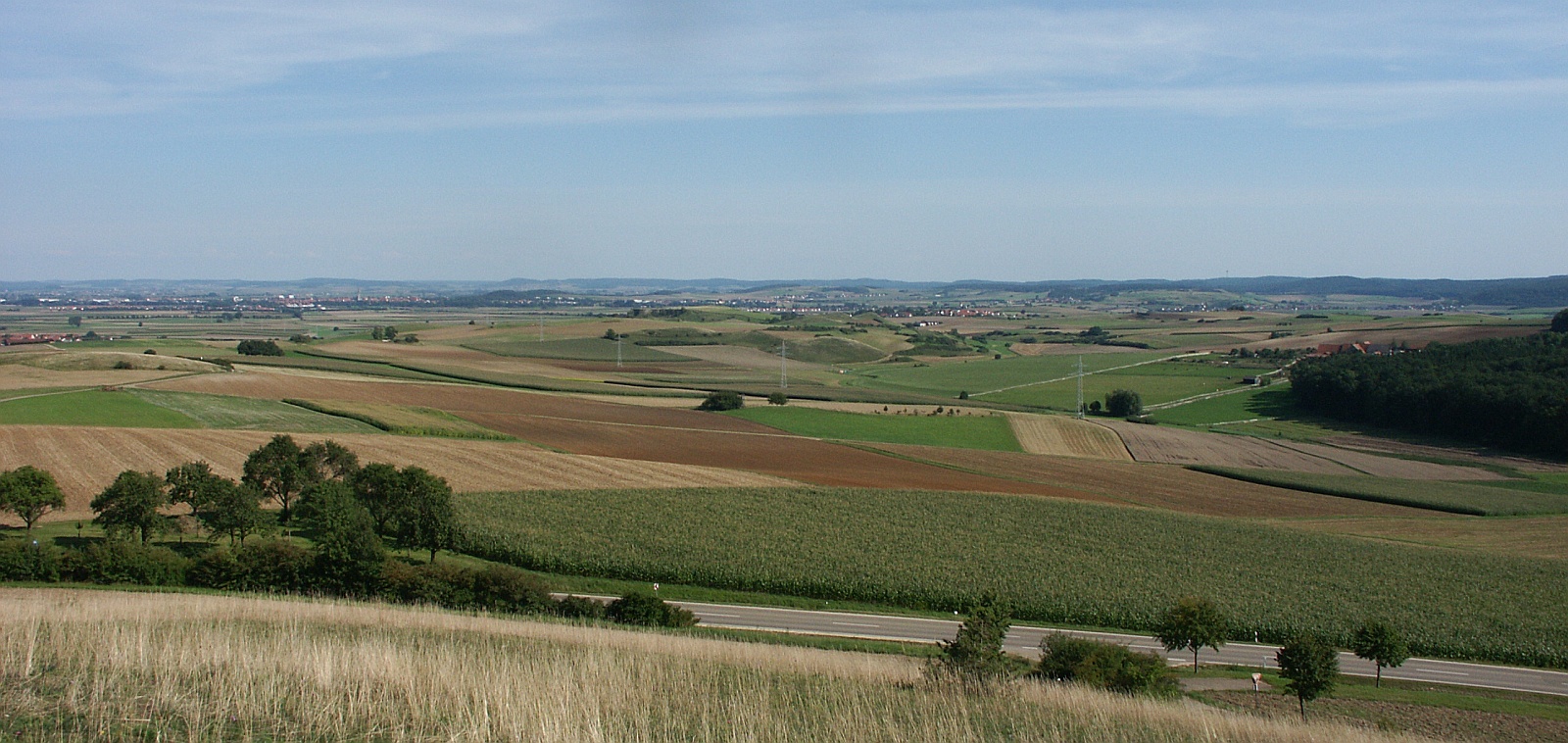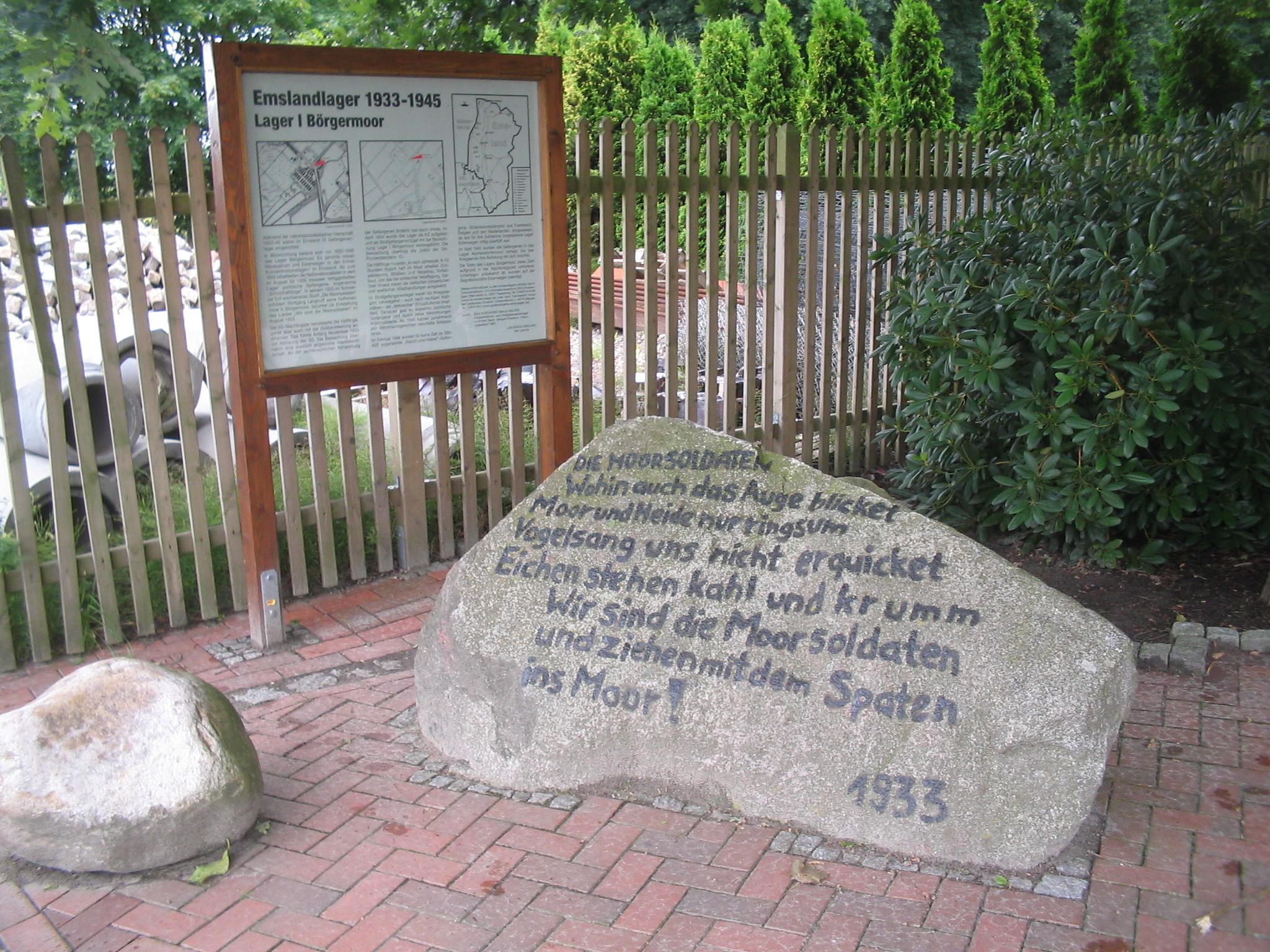|
Alfred Bentz
Alfred Theodor Bentz (26 July 1897 – 11 June 1964) was a German geologist and paleontologist who worked at the Preußischen Geologischen Bundesanstalt and served as an authority on the management of oil and gas reserves in Germany during the Third Reich. Although he reported directly to Hermann Göring, he was not a member of the Nazi party and was reinstated after the war, continuing to direct geology research in the post war years. Bentz was born in Heidenheim in the eastern Swabian Alb to confectioner Karl Alfos and Pauline Adelheid Keller. Following early education, and a couple of years in military service he studied at the University of Munich followed by a doctorate from the University of Tübingen under Edwin Hennig. His thesis was on the stratigraphy of the Middle Jurassic and the tectonics at the western rim of the Nördlingen Ries. At that time the impact theory for dinosaur extinction had not been proposed and he was skeptical of the idea after it was proposed. ... [...More Info...] [...Related Items...] OR: [Wikipedia] [Google] [Baidu] |
Nazi Germany
Nazi Germany (lit. "National Socialist State"), ' (lit. "Nazi State") for short; also ' (lit. "National Socialist Germany") (officially known as the German Reich from 1933 until 1943, and the Greater German Reich from 1943 to 1945) was the German state between 1933 and 1945, when Adolf Hitler and the Nazi Party controlled the country, transforming it into a dictatorship. Under Hitler's rule, Germany quickly became a totalitarian state where nearly all aspects of life were controlled by the government. The Third Reich, meaning "Third Realm" or "Third Empire", alluded to the Nazi claim that Nazi Germany was the successor to the earlier Holy Roman Empire (800–1806) and German Empire (1871–1918). The Third Reich, which Hitler and the Nazis referred to as the Thousand-Year Reich, ended in May 1945 after just 12 years when the Allies defeated Germany, ending World War II in Europe. On 30 January 1933, Hitler was appointed chancellor of Germany, the head of gove ... [...More Info...] [...Related Items...] OR: [Wikipedia] [Google] [Baidu] |
Hermann Göring
Hermann Wilhelm Göring (or Goering; ; 12 January 1893 – 15 October 1946) was a German politician, military leader and convicted war criminal. He was one of the most powerful figures in the Nazi Party, which ruled Germany from 1933 to 1945. A veteran World War I fighter pilot ace, Göring was a recipient of the ("The Blue Max"). He was the last commander of ''Jagdgeschwader'' 1 (Jasta 1), the fighter wing once led by Manfred von Richthofen. An early member of the Nazi Party, Göring was among those wounded in Adolf Hitler's failed Beer Hall Putsch in 1923. While receiving treatment for his injuries, he developed an addiction to morphine which persisted until the last year of his life. After Hitler became Chancellor of Germany in 1933, Göring was named as minister without portfolio in the new government. One of his first acts as a cabinet minister was to oversee the creation of the Gestapo, which he ceded to Heinrich Himmler in 1934. Following the establishment of th ... [...More Info...] [...Related Items...] OR: [Wikipedia] [Google] [Baidu] |
Heidenheim An Der Brenz
Heidenheim an der Brenz, or just Heidenheim (; Swabian: ''Hoidna'' or ''Hoirna''), is a town in Baden-Württemberg in southern Germany. It is located near the border with Bavaria, approximately 17 km south of Aalen and 33 km north of Ulm. Heidenheim is the largest town and the seat of the district of Heidenheim, and ranks third behind Aalen and Schwäbisch Gmünd in size among the towns in the region of East Württemberg. Heidenheim is the economic center for all the communities in Heidenheim district and is the headquarters of the Voith industrial company. The town's population passed the 20,000 mark in 1925. Heidenheim collaborates with the town of Nattheim in administrative matters. The residents of Heidenheim and its surrounding area speak the distinct German dialect of Swabian. Geography Heidenheim is situated between Albuch and the Härtsfeld region in the northeast corner of the Swabian Alb where the valley of the Brenz meets the Stubental at the foot ... [...More Info...] [...Related Items...] OR: [Wikipedia] [Google] [Baidu] |
University Of Tübingen
The University of Tübingen, officially the Eberhard Karl University of Tübingen (german: Eberhard Karls Universität Tübingen; la, Universitas Eberhardina Carolina), is a public research university located in the city of Tübingen, Baden-Württemberg, Germany. The University of Tübingen is one of eleven German Excellence Universities. The University of Tübingen is especially known as a centre for the study of plant biology, medicine, law, archeology, ancient cultures, philosophy, theology, and religious studies as well as more recently as center of excellence for artificial intelligence. The university's noted alumni include presidents, EU Commissioners, and judges of the Federal Constitutional Court. The university is associated with eleven Nobel laureates, especially in the fields of medicine and chemistry. History The University of Tübingen was founded in 1477 by Count Eberhard V (Eberhard im Bart, 1445–1496), later the first Duke of Württemberg, a civic and ... [...More Info...] [...Related Items...] OR: [Wikipedia] [Google] [Baidu] |
Edwin Hennig
Edwin Hennig (27 April 1882 – 12 November 1977) was a German paleontologist. Career Edwin Hennig was one of five children of a merchant who died when Hennig was 10 years old. Starting in 1902, Hennig studied natural sciences, anthropology, and philosophy at the University of Freiburg in Freiburg im Breisgau, Baden-Württemberg, Germany where earned a doctorate in 1906 with Otto Jaekel. This is where Hennig significantly contributed to research on the extinct genus Gyrodus. Afterwards, he was an assistant to Wilhelm von Branca at Berlin’s Friedrich-Wilhelms-Universität, where he attained his habilitation and became a private lecturer. During World War I, he was a military geologist until 1917 where he became a professor at the University of Tübingen and later an academic rector and director of the geological paleontology institute. Hennig later joined the National Socialist German Workers' Party in 1937. In 1945, he was relieved of office and submitted to denazific ... [...More Info...] [...Related Items...] OR: [Wikipedia] [Google] [Baidu] |
Nördlinger Ries
The Nördlinger Ries is an impact crater and large circular depression in western Bavaria and eastern Baden-Württemberg. It is located north of the Danube in the district of Donau-Ries. The city of Nördlingen is located within the depression, about south-west of its centre. Etymology "Ries" is derived from Raetia, since the tribe of Raetians lived in the area in pre-Roman times. Description The depression is a meteorite impact crater formed 14.808 ± 0.038 million years ago in the Miocene. The crater is most commonly referred to simply as ''Ries crater'' or ''the Ries''. The original crater rim had an estimated diameter of . The present floor of the depression is about below the eroded remains of the rim. It was originally assumed that the Ries was of volcanic origin. In 1960 Eugene Shoemaker and Edward C. T. Chao showed that the depression was caused by meteorite impact. The key evidence was the presence of coesite, which, in unmetamorphosed rocks, can only be fo ... [...More Info...] [...Related Items...] OR: [Wikipedia] [Google] [Baidu] |
Emsland
Landkreis Emsland () is a district in Lower Saxony, Germany named after the river Ems. It is bounded by (from the north and clockwise) the districts of Leer, Cloppenburg and Osnabrück, the state of North Rhine-Westphalia (district of Steinfurt), the district of Bentheim in Lower Saxony, and the Netherlands (provinces of Drenthe and Groningen). History For a long time the region of the Emsland was extremely sparsely populated, due to the fens on both sides of the river. Small villages were established in medieval times along the river and on the Hümmling. In the 13th century the bishops of Münster gained control over the region; the Emsland remained property of the bishop until 1803, when the clerical states were dissolved. It came under rule of Prussia and Arenberg, but after the Napoleonic Wars the Congress of Vienna decided to hand the territory over to the Kingdom of Hanover. The Duchy of Arenberg continued to exist as a fief of the Hanoverian kings. When Hanover was a ... [...More Info...] [...Related Items...] OR: [Wikipedia] [Google] [Baidu] |
Stratford-upon-Avon
Stratford-upon-Avon (), commonly known as just Stratford, is a market town and civil parish in the Stratford-on-Avon district, in the county of Warwickshire, in the West Midlands region of England. It is situated on the River Avon, north-west of London, south-east of Birmingham and south-west of Warwick. The town is the southernmost point of the Arden area on the edge of the Cotswolds. In the 2021 census Stratford had a population of 30,495; an increase from 27,894 in the 2011 census and 22,338 in the 2001 Census. Stratford was originally inhabited by Britons before Anglo-Saxons and remained a village before the lord of the manor, John of Coutances, set out plans to develop it into a town in 1196. In that same year, Stratford was granted a charter from King Richard I to hold a weekly market in the town, giving it its status as a market town. As a result, Stratford experienced an increase in trade and commerce as well as urban expansion. Stratford is a popular touris ... [...More Info...] [...Related Items...] OR: [Wikipedia] [Google] [Baidu] |
1897 Births
Events January–March * January 2 – The International Alpha Omicron Pi sorority is founded, in New York City. * January 4 – A British force is ambushed by Chief Ologbosere, son-in-law of the ruler. This leads to a punitive expedition against Benin. * January 7 – A cyclone destroys Darwin, Australia. * January 8 – Lady Flora Shaw, future wife of Governor General Lord Lugard, officially proposes the name "Nigeria" in a newspaper contest, to be given to the British Niger Coast Protectorate. * January 22 – In this date's issue of the journal ''Engineering'', the word ''computer'' is first used to refer to a mechanical calculation device. * January 23 – Elva Zona Heaster is found dead in Greenbrier County, West Virginia. The resulting murder trial of her husband is perhaps the only capital case in United States history, where spectral evidence helps secure a conviction. * January 31 – The Czechoslovak Trade Union Association is f ... [...More Info...] [...Related Items...] OR: [Wikipedia] [Google] [Baidu] |
1964 Deaths
Events January * January 1 – The Federation of Rhodesia and Nyasaland is dissolved. * January 5 - In the first meeting between leaders of the Roman Catholic and Orthodox churches since the fifteenth century, Pope Paul VI and Patriarch Athenagoras I of Constantinople meet in Jerusalem. * January 6 – A British firm, the Leyland Motors, Leyland Motor Corp., announces the sale of 450 buses to the Cuban government, challenging the United States blockade of Cuba. * January 9 – ''Martyrs' Day (Panama), Martyrs' Day'': Armed clashes between United States troops and Panamanian civilians in the Panama Canal Zone precipitate a major international crisis, resulting in the deaths of 21 Panamanians and 4 U.S. soldiers. * January 11 – United States Surgeon General Luther Terry reports that smoking may be hazardous to one's health (the first such statement from the U.S. government). * January 12 ** Zanzibar Revolution: The predominantly Arab government of Zanzibar is overthrown b ... [...More Info...] [...Related Items...] OR: [Wikipedia] [Google] [Baidu] |







